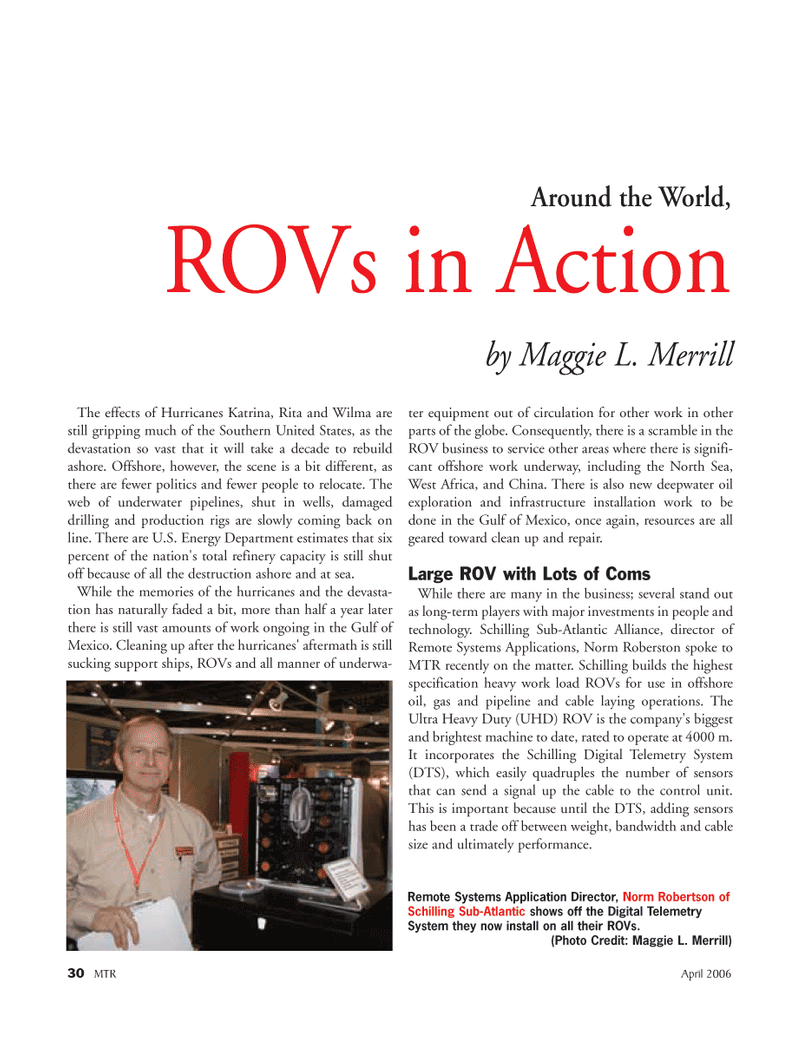
Page 30: of Marine Technology Magazine (April 2006)
The Offshore Technology Edition
Read this page in Pdf, Flash or Html5 edition of April 2006 Marine Technology Magazine
The effects of Hurricanes Katrina, Rita and Wilma are still gripping much of the Southern United States, as the devastation so vast that it will take a decade to rebuild ashore. Offshore, however, the scene is a bit different, as there are fewer politics and fewer people to relocate. The web of underwater pipelines, shut in wells, damaged drilling and production rigs are slowly coming back on line. There are U.S. Energy Department estimates that six percent of the nation's total refinery capacity is still shut off because of all the destruction ashore and at sea.
While the memories of the hurricanes and the devasta- tion has naturally faded a bit, more than half a year later there is still vast amounts of work ongoing in the Gulf of
Mexico. Cleaning up after the hurricanes' aftermath is still sucking support ships, ROVs and all manner of underwa- ter equipment out of circulation for other work in other parts of the globe. Consequently, there is a scramble in the
ROV business to service other areas where there is signifi- cant offshore work underway, including the North Sea,
West Africa, and China. There is also new deepwater oil exploration and infrastructure installation work to be done in the Gulf of Mexico, once again, resources are all geared toward clean up and repair.
Large ROV with Lots of Coms
While there are many in the business; several stand out as long-term players with major investments in people and technology. Schilling Sub-Atlantic Alliance, director of
Remote Systems Applications, Norm Roberston spoke to
MTR recently on the matter. Schilling builds the highest specification heavy work load ROVs for use in offshore oil, gas and pipeline and cable laying operations. The
Ultra Heavy Duty (UHD) ROV is the company's biggest and brightest machine to date, rated to operate at 4000 m.
It incorporates the Schilling Digital Telemetry System (DTS), which easily quadruples the number of sensors that can send a signal up the cable to the control unit.
This is important because until the DTS, adding sensors has been a trade off between weight, bandwidth and cable size and ultimately performance. 30 MTR April 2006
Around the World,
ROVs in Action by Maggie L. Merrill
Remote Systems Application Director, Norm Robertson of
Schilling Sub-Atlantic shows off the Digital Telemetry
System they now install on all their ROVs. (Photo Credit: Maggie L. Merrill)
MTR#3 (17-32).qxd 4/7/2006 11:34 AM Page 30

 29
29

 31
31
